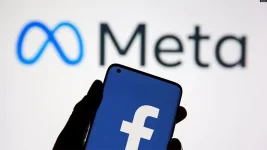Meta Faces Global Challenges in Facebook Content Moderation.
Facebook's efforts to control harmful content are criticized by users, governments, and rights groups worldwide. Two Meta Oversight Board members shared insights at an internet freedom forum in Dakar, Senegal.
The social network connects 2.9 billion monthly users and creates massive amounts of content each minute. This scale makes finding and removing dangerous posts a major challenge.
AI systems help flag offensive material but struggle with language nuances and cultural differences. Human moderators fill these gaps, yet they cannot review all content.
The platform must balance free speech against user safety. Different regions view content differently - what counts as political speech in one country might appear as hate speech in another. This leads to disputes about Facebook's choices.
These decisions affect elections and political campaigns. Despite new rules on political ads and fact-checking, false information continues to spread. Some governments push Facebook to remove critical posts, threatening bans if it refuses.
Content review takes a heavy toll on moderators. Many develop stress disorders from viewing violent or disturbing materials. Facebook offers mental health support, but concerns about worker wellbeing remain.
The company's AI systems process millions of posts daily. Yet these tools often miss subtle forms of hate speech or flag harmless content by mistake. Problems increase with less common languages, leaving some communities at risk.
Cultural misunderstandings persist despite Facebook's diverse moderation teams. Users outside Western countries say their cultural norms receive less attention, which can create anger when moderators remove locally acceptable content.
False health claims and extreme views pose special problems. During COVID-19, anti-vaccine messages spread rapidly. Facebook partners with fact-checkers but harmful posts often reach many users before removal.
The platform is attacked from all sides. Free speech advocates protest removed posts, safety groups demand stricter rules, and every mistake draws global attention.
Facebook plans better AI tools and larger moderation teams. Clear policies and greater transparency might reduce some criticism. Yet managing speech on a worldwide platform remains a complex task in today's divided world.
Facebook's efforts to control harmful content are criticized by users, governments, and rights groups worldwide. Two Meta Oversight Board members shared insights at an internet freedom forum in Dakar, Senegal.
The social network connects 2.9 billion monthly users and creates massive amounts of content each minute. This scale makes finding and removing dangerous posts a major challenge.
AI systems help flag offensive material but struggle with language nuances and cultural differences. Human moderators fill these gaps, yet they cannot review all content.
The platform must balance free speech against user safety. Different regions view content differently - what counts as political speech in one country might appear as hate speech in another. This leads to disputes about Facebook's choices.
These decisions affect elections and political campaigns. Despite new rules on political ads and fact-checking, false information continues to spread. Some governments push Facebook to remove critical posts, threatening bans if it refuses.
Content review takes a heavy toll on moderators. Many develop stress disorders from viewing violent or disturbing materials. Facebook offers mental health support, but concerns about worker wellbeing remain.
The company's AI systems process millions of posts daily. Yet these tools often miss subtle forms of hate speech or flag harmless content by mistake. Problems increase with less common languages, leaving some communities at risk.
Cultural misunderstandings persist despite Facebook's diverse moderation teams. Users outside Western countries say their cultural norms receive less attention, which can create anger when moderators remove locally acceptable content.
False health claims and extreme views pose special problems. During COVID-19, anti-vaccine messages spread rapidly. Facebook partners with fact-checkers but harmful posts often reach many users before removal.
The platform is attacked from all sides. Free speech advocates protest removed posts, safety groups demand stricter rules, and every mistake draws global attention.
Facebook plans better AI tools and larger moderation teams. Clear policies and greater transparency might reduce some criticism. Yet managing speech on a worldwide platform remains a complex task in today's divided world.












